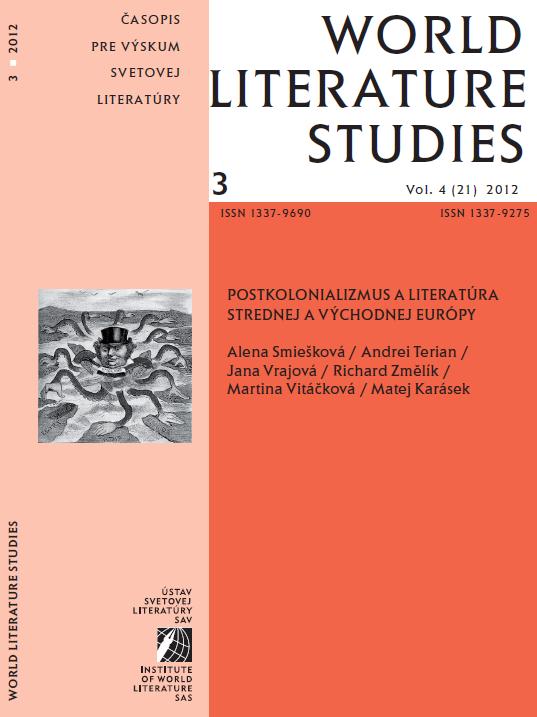Is There an East-Central European Postcolonialism? Towards a Unified Theory of (Inter)Literary Dependency
Is There an East-Central European Postcolonialism? Towards a Unified Theory of (Inter)Literary Dependency
Author(s): Andrei TerianSubject(s): Literary Texts
Published by: SAV - Slovenská akadémia vied - Ústav svetovej literatúry
Keywords: Postkolonializmus. Stredo-východná Európa. Orientalizmus. (Medzi)literárna závislosť. Menšinové/okrajové/postkoloniálne/mimetické literatúry.
Summary/Abstract: This paper interrogates the existence of an East-Central European (post)colonialism, which has known considerable dissemination in the postcolonial studies of the last decade. There are two versions to the thesis mentioned: (1) that of “remote” (post)colonialism, according to which East-Central Europe was the field of a colonization carried out by the great Western powers (especially the United Kingdom, France and the USA), which was seen in the construction and propagation of the so-called “East-European Orientalism”; and (2) that of (post)colonialism “by annexation”, according to which East-Central Europe was colonized by the regional empires (particularly the Soviet Union and its predecessor, the Tsarist Empire, but also by the German, Hungarian and Ottoman Empires). My premise is that, in order to become a truly efficient analytical instrument, postcolonialism requires integration in a unified theory of (inter)literary dependency and, at the same time, it must be dissociated from certain concepts that concern interrelated phenomena, such as imperialism, domination or oppression. On this view, the thesis of “remote” postcolonialism is rejected, as “Orientalization” is a process which was applied not only by Western Europe to Eastern Europe, but it can equally well be said to characterize the relations between countries situated only in the West or only in the East of Europe. Therefore, in its current configuration, such a thesis faces the danger of blending any conceptual distinction in a postcolonialism without shores. In order to prevent such conceptual indeterminacy, the thesis of (post)colonialism “by annexation” is reformulated here within a theory of (inter)literary dependency, based on Wallerstein’s world-systems analysis, Even-Zohar’s polysystem theory and Ďurišin’s theory of interliterary process. Against this new background, my study differentiates among four types of “dependent” literatures – minority, marginal, (post)colonial and mimetic – which are then used in the characterization of the position of East- Central European literatures over the past two centuries. The conclusion of this paper is that, with the exception of the former Soviet Republics, postcolonialism represents a valid instrument in the analysis of East-Central European literatures only for several provinces in the Tsarist and Austro-Hungarian Empires. However, in a broader context, the quadripartite classification I propose can serve as a conceptual device for the exploration of the interliterary relations characteristic of East-Central Europe literatures over the past two centuries.
Journal: World Literature Studies
- Issue Year: IV/2012
- Issue No: 3
- Page Range: 21-36
- Page Count: 16
- Language: English

